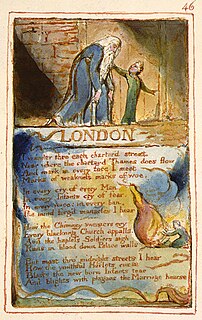 W
WIn rhetoric, an anaphora is a rhetorical device that consists of repeating a sequence of words at the beginnings of neighboring clauses, thereby lending them emphasis. In contrast, an epistrophe is repeating words at the clauses' ends. The combination of anaphora and epistrophe results in symploce.
 W
WA continuation novel is a canonical sequel novel with continuity in the style of an established series, produced by a new author after the original author's death.
 W
WA conversazione is a "social gathering [predominantly] held by [a] learned or art society" for conversation and discussion, especially about the arts, literature, medicine, and science.It would not be easy to devise a happier way [than the conversazione] of bringing novelties at once under practical criticism—of making the outliers of science acquainted with the centre, of enabling investigators to compare operations and discuss facts and speculations, and of giving occasion for renewal of intercourse and removal of misunderstandings. …[The] tangible gain to science [from the coversazione is that] inventors and experimentalists … hear [directly] what contemporaries say of their schemes and experiments, and much can be said and done with advantage amid the free talk of a general gathering which could not be permitted in the formal meeting of a scientific society.
 W
WA debut novel is the first novel a novelist publishes. Debut novels are often the author's first opportunity to make an impact on the publishing industry, and thus the success or failure of a debut novel can affect the ability of the author to publish in the future. First-time novelists without a previous published reputation, such as publication in nonfiction, magazines, or literary journals, typically struggle to find a publisher.
 W
WA détournement, meaning "rerouting, hijacking" in French, is a technique developed in the 1950s by the Letterist International, and later adapted by the Situationist International (SI), that was defined in the SI's inaugural 1958 journal as "[t]he integration of present or past artistic productions into a superior construction of a milieu. In this sense there can be no situationist painting or music, but only a situationist use of those means. In a more elementary sense, détournement within the old cultural spheres is a method of propaganda, a method which reveals the wearing out and loss of importance of those spheres."
 W
WFoul papers are an author's working drafts. The term is most often used in the study of the plays of Shakespeare and other dramatists of English Renaissance drama. Once the composition of a play was finished, a transcript or "fair copy" of the foul papers was prepared, by the author or by a scribe.
 W
WOptimism is an attitude reflecting a belief or hope that the outcome of some specific endeavor, or outcomes in general, will be positive, favorable, and desirable. A common idiom used to illustrate optimism versus pessimism is a glass filled with water to the halfway point: an optimist is said to see the glass as half full, while a pessimist sees the glass as half empty.
 W
WAn epilogue or epilog is a piece of writing at the end of a work of literature, usually used to bring closure to the work. It is presented from the perspective of within the story. When the author steps in and speaks directly to the reader, that is more properly considered an afterword. The opposite is a prologue—a piece of writing at the beginning of a work of literature or drama, usually used to open the story and capture interest. Some genres, for example television programs and video games, call the epilogue an "outro" patterned on the use of "intro" for "introduction".
 W
WThe plain style in literature, otherwise referred to as the 'low style', is the most common form of communication in the English language. It is a form of rhetoric which expresses a message very clearly to convey a direct meaning. The core values of the plain style in literature are "clarity, brevity and sincerity...". emphasising the dichotomous language forms and features between the plain style and the Baroque style, also referred to as the 'high style', in the English language.
 W
WPlygain is a traditional Welsh Christmas service which takes place in a church between three and six o'clock in the morning, traditionally on Christmas morning.